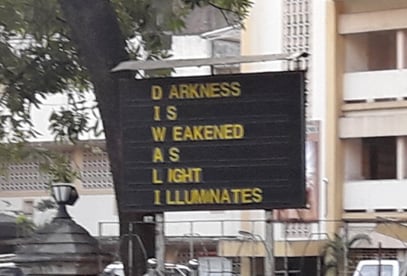In technology terms, India is a genuinely ‘open source’ country; as many of its 2,75 million developers would attest. Today, Android and iOS account for 71% of India’s mobile phones 1, compared to a staggering 99% globally2. This difference is illustrative; in India nearly one third of mobile phones are ‘non proprietary’ (ie. outside the Android/Apple duopoly); the vast majority of these and open source. This means based on a set of open/sharable standards around which carry no license fees; the antithesis of the traditional, closed, proprietary model (think Windows, from the PC world).

Price is a key driver towards Open Source, but so are market realities; Indians will purchase more ‘vanilla’ feature phones than smartphones, even this year. Local brands such as Micromax and Karbonn have built huge market shares in making a virtue out of this necessity, taking components from various operating environments and combining them for the Indian market.
But even beyond the technology sector, evidence of India’s ‘open source’ logic’ – the ability to seamlessly mix and match elements from opposing ‘proprietary systems’ is on display. And Diwali is the perfect occasion to demonstrate as the greeting I received from our home help confirms (left). The sender of this wonderful message is Catholic, as is the sentiment and the picture of Jesus, seamlessly placed alongside the ‘Happy Diwali’ greeting.

More ‘open source’ mixing can be found outside our local church, where the acronym (if read vertically) spells . . . . Diwali!
India’s penchant for ‘mix and match’ extends to cuisine; their most popular actor, Amitabh Bachchan, is the longstanding ambassador for a brand of noodles; a food whose origins are Mongolian. Noodles are now a stable in most Indian kitchens; according to one report, “ . . . since most of the women in urban India are working, instant noodles and ready-to-eat foods are slowly and steadily replacing the traditional rice and pulses . . . ’3
Italian cuisine is the latest to be complimented by India’s ‘open source’ logic Domino’s is offering new varieties to attract local consumers; it has even hired a Michelin-starred Indian chef to design them. Pizza Hut proposes a mini chickpea pizza for under $1 and said to be considering inviting diners into the kitchens to create their own pizzas.
Indians appear inherently against proprietary, closed systems, and in favour of open environments where they can experiment, mix and match, and combine the very best of every world to suit their own. An environment where Diwali is celebrated at Mass, where noodles are served with Biryani, and where the mobile phone market has not been swallowed entirely by two vendors.
This is the true beat of India’s Open Source heart!
____________________________________
[1] https://www.statista.com/statistics/262157/market-share-held-by-mobile-operating-systems-in-india/
[2] http://www.idc.com/prodserv/smartphone-os-market-share.jsp
[3] http://business.mapsofindia.com/top-brands-india/top-noodle-brands-in-india.html
